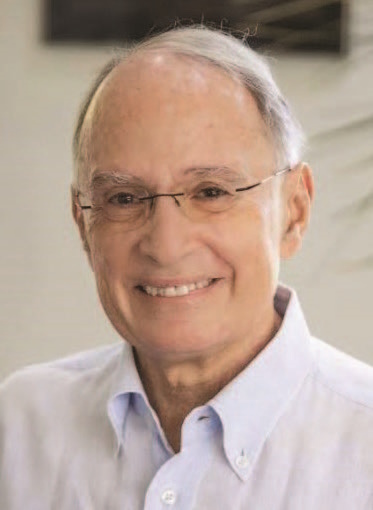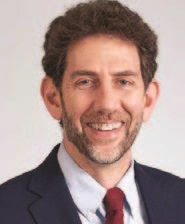Joseph Biederman, MD: A Champion of Clinical Science
Craig Bruce Hackett Surman, MD
Download PDF


Joseph Biederman, MD | 1947–2023
Up until his recent passing, Joseph Biederman (CHADD Hall of FAME, inducted 1995) was an explorer, teacher, and champion of the clinical science of ADHD. The way we understand mental functioning is built on the work of a vast number of researchers and clinicians like him. These are individuals who have committed themselves not just to alleviating suffering as healers, but to explore how we can do that better. Dr. Biederman was highly productive among such explorers, and helped countless others find their way in a world of new tools and techniques that now shape modern clinical care. His intimate involvement in the study of ADHD offers a chance to reflect on how far the science of ADHD has come in the last few decades.
A doctor in training might hear the phrase “see one, do one, teach one” describing the core process that allows medical knowledge to spread. Procedures like doing a blood draw or taking a blood pressure are adopted across providers by observing how they are done, trying it themselves, and then showing other people how to do them. But there are so many possible ways of approaching the suffering that people have—how do we know which problems we can help people with, and what interventions help people most? This metaquestion takes a whole separate effort to answer, and this is where clinician-researchers like Dr. Biederman help the rest of us figure out best practices—using science.
Clinical scientific research takes much time and effort, and collaboration. Dr. Biederman was perhaps one of the most obvious examples of such collaboration, having been a part of over 700 research publications on ADHD, according to a simple recent search on PubMed. Behind each of those publications is a vast network of committed professionals that he was a part of that answered questions his peers, who reviewed and authorized those publications, felt needed to be addressed.
Here are some of the questions his collaborations helped answer. Is ADHD a biological disorder? (YES) Is it inheritable? (YES) Does ADHD persist into adulthood? (YES) Does ADHD exist in girls and women? (YES) Do medications alleviate symptoms of ADHD? (YES) Can cognitive behavioral therapy reduce the burden of ADHD? (YES) Does presence of ADHD increase risk for and complicate presentations of mood disorders, anxiety disorders, substance abuse, learning disorders, eating disorders, anxiety disorders, and autism disorders? (YES) Is ADHD associated with emotional self-regulation challenges? (YES)
These answers are clear, because they have been replicated across multiple research groups. But other critical questions asked in the last few decades have left less definitive answers. For example: Do tests of brain function correlate with diagnosis of ADHD? The answer is sometimes. While the definition of ADHD used by clinicians is purely related to symptom pattern over time, it would be so nice if there was a definitive neuropsychological test pattern, a particular brain activity pattern, or a particular shape of brain parts that perfectly matched the pattern of symptoms. But the science shows that there is no one pattern—diverse patterns of operation in different brain regions can produce the same presentation of symptoms. Brain regions involved in attention appear to operate differently in children and adults with ADHD, but it is not one pattern, or one region. It has taken years of work by clinician-scientists like Dr. Biederman to show this and to explore the promise and limits of brain tests.
Like many researchers eager to find answers, Dr. Biederman was open to the new tools of the last few decades. He embraced and explored the limits of the new diagnostic criteria that placed inattentive ADHD as relevant with the advent of DSM-IV, new medications that changed inattentive and impulsive-hyperactive symptoms, and new brain imaging and neuropsychological measurement methods. With advent of SMS (text messaging), he championed exploring how an app could help patients stay connected to the treatments that helped them.
But one of his greatest gifts to the field of ADHD was a quite old-fashioned one: creation of educational programs where other clinicians could “see” how to help others, so they could move on to doing and teaching. He was a founding member of the American Professional Society of ADHD and Related Disorders (APSARD), a forum for the continued grounding of ADHD assessment and treatment in science.
When a clinician wants to know how to help a person in front of them that struggles to control how they behave and follow the expectations of the people around them, we now have answers for those clinicians, thanks to the work of Dr Biederman and so many others like him. In partnership with CHADD and other groups, APSARD is currently developing guidelines for adult ADHD treatment—itself a tool that can help bring the results of the critical clinical science that Dr Biederman championed more broadly into practice.
His work offers a clear legacy of the value of grounding the answers to our questions about ADHD in science. As we continue to explore the new tools and ways of disseminating them in an era of rapid information sharing, everyone deserves to know what is actually likely to help them—and to have access to those supports and treatments.
 Craig Bruce Hackett Surman, MD, is an assistant professor of psychiatry at Harvard Medical School. He is the scientific coordinator of the adult ADHD research program of the clinical and research program in pediatric psychopharmacology at Massachusetts General Hospital. His research strives to improve the assessment and treatment of self-regulatory disorders, including ADHD, in adulthood. He completed a residency in psychiatry at the Harvard Longwood Psychiatry Residency Training Program in Boston, as well as a fellowship in neuropsychiatry at the division of cognitive and behavioral neurology at Brigham and Women’s Hospital, also in Boston. His work has been published in peer-reviewed journals and presented internationally. Dr. Surman has directed or facilitated over forty studies related to ADHD in adults. He is the coauthor of FASTMINDS: How to Thrive If You Have ADHD (or Think You Might) and the editor of ADHD in Adults: A Practical Guide to Evaluation and Management.
Craig Bruce Hackett Surman, MD, is an assistant professor of psychiatry at Harvard Medical School. He is the scientific coordinator of the adult ADHD research program of the clinical and research program in pediatric psychopharmacology at Massachusetts General Hospital. His research strives to improve the assessment and treatment of self-regulatory disorders, including ADHD, in adulthood. He completed a residency in psychiatry at the Harvard Longwood Psychiatry Residency Training Program in Boston, as well as a fellowship in neuropsychiatry at the division of cognitive and behavioral neurology at Brigham and Women’s Hospital, also in Boston. His work has been published in peer-reviewed journals and presented internationally. Dr. Surman has directed or facilitated over forty studies related to ADHD in adults. He is the coauthor of FASTMINDS: How to Thrive If You Have ADHD (or Think You Might) and the editor of ADHD in Adults: A Practical Guide to Evaluation and Management.
Other Articles in this Edition
The Challenge of Keeping Friends
Is ADHD Related to Eating Difficulties?
Cognitive Disengagement Syndrome
EpicWin as Game-Based Self-Management
Why Are Black Preschoolers with ADHD Expelled?
Launching Successful Young Adults with ADHD
Beware These Sneaky Energy Vampires
How I Manage My Improv-Based Training Business with ADHD
